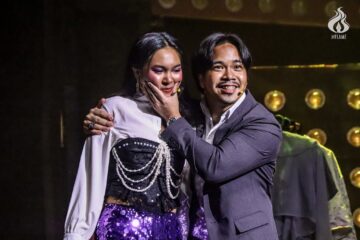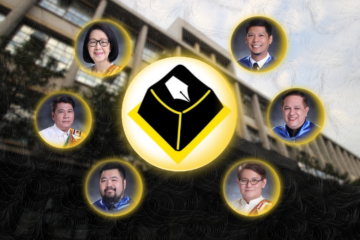
NOBEL PRIZE-winning author and UST honorary professor Mario Vargas Llosa, a celebrated figure known for his bold political commentaries in Latin American literature, passed away on Sunday, April 13.
He was 89.
Llosa’s death was confirmed in a family statement posted by his son Álvaro Vargas Llosa on X.
“His departure will sadden his relatives, his friends and his readers around the world, but we hope that they will find comfort, as we do, in the fact that he enjoyed a long, adventurous and fruitful life, and leaves behind him a body of work that will outlive him,” the post read.
The late Peruvian novelist was conferred the distinction of honorary professor at the University on November 7, 2016, when he toured the Miguel de Benavides library and delivered a lecture in Spanish about literature as a tool for social change. His visit was capped off with a book-signing event and a courtesy meeting with UST officials.
His works are part of the curricula in the University’s literary programs, with his 2001 essay “Why Literature?” commonly discussed in Literature and Creative Writing courses.
Llosa gained prominence during the Latin American literary “boom,” a movement from the early 1960s to the 1970s that saw a new wave of Latin American authors receiving international acclaim.
Known for exploring social inequalities and corruption in Latin America, Llosa’s debut novel “The Time of the Hero” (1963) offered a critical examination of authoritarianism in Peruvian society. The book, set in the Leoncio Prado Military Academy where Llosa had studied, tackled corruption, brutality and the oppressive culture within the institution. It sparked controversy in Peru and prompted the academy to publicly burn copies of the book.
In 1990, Llosa ran for president in Peru as a candidate of center-right coalition Frente Democrático but lost. He campaigned for free-market causes, such as comprehensive privatization and market liberalization, but some critics claimed his proposals alienated a significant portion of the electorate by focusing on neoliberal economic reforms.
After losing the election, Llosa moved to Spain and became a Spanish citizen in 1993, a year after which he was given the Miguel de Cervantes Prize, the highest literary award in Hispanic literature.
The late political novelist was awarded the Nobel Prize in Literature in 2010 for his “cartography of structures of power and his images of the individual’s resistance, revolt, and defeat.”
The genre of his works ranged from romance to political commentaries. Among his prominent works are “The Feast of the Goat” (2000), “Conversation in the Cathedral” (1969), “The Bad Girl” (2006) and “The Dream of the Celt” (2010).
Llosa’s time in UST
In a 2017 interview at the “Akdang Buhay” series of the UP Institute of Creative Writing, UST Center for Creative Writing and Literary Studies director Cristina Pantoja-Hidalgo said it was through her persistent invitation that Llosa agreed to visit the University.
Hidalgo, a longtime fictionist, said she had sought help from then-UST rector Fr. Herminio Dagohoy, O.P., who had contact with the vice president of Peru at that time. It took years before Llosa finally paid a visit to the University in 2016.
“I couldn’t believe it… Later, I heard from the Spanish ambassador that he (Llosa), in fact, asked them to schedule his visit to UST first and then La Salle because we had invited him first,” she said.
Hidalgo also recounted the time when she spoke briefly with Llosa during a private dinner and was struck by his humility.
“I was very impressed by his humility when he (Llosa) said that he thought that he did not have talent. He said… ‘When I was young, writers never even thought of success. Success was not a word in our vocabulary… we did not have publishers, we did not have readers, with no critics. So I was very lucky,’” Hidalgo said.
According to Hidalgo, Llosa was surprised that she taught his novel “The Green House” in class as it was a difficult starting point for his career. He admitted that he still doubted his talent at every beginning of his writing journey.
“He said, ‘Every time I start writing, I don’t know that I can make it.’ So, I was very impressed with that humility,” she added. F



